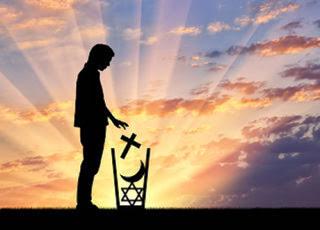 Young people (millennials) have left religion behind in record numbers, and it is likely that Generation Z will do so in even larger numbers.
Young people (millennials) have left religion behind in record numbers, and it is likely that Generation Z will do so in even larger numbers.Some people say that it is normal for young people to spurn religion, but they will return to it when they get older. But there is now evidence that is not true. Millennials are not returning to their religion.
Here's some of how Daniel Cox and Amelia Thomson-DeVeaux at FiveThirtyEight.com describe this phenomenon (which spells big trouble for religion in this country):
Millennials have earned a reputation for reshaping industries and institutions — shaking up the workplace, transforming dating culture, and rethinking parenthood. They’ve also had a dramatic impact on American religious life. Four in ten millennials now say they are religiously unaffiliated, according to the Pew Research Center. In fact, millennials (those between the ages of 23 and 38) are now almost as likely to say they have no religion as they are to identify as Christian.
For this analysis, we relied on the generational categories outlined by the Pew Research Center.
" data-footnote-id="1" style="border: 0px; box-sizing: border-box; font-family: inherit; font-stretch: inherit; font-style: inherit; font-variant-caps: inherit; line-height: inherit; margin: 0px; padding: 0px; position: relative; text-decoration: none; text-rendering: optimizeLegibility; vertical-align: baseline;" href="https://fivethirtyeight.com/features/millennials-are-leaving-religion-and-not-coming-back/?ex_cid=story-facebook&fbclid;=IwAR3XUrUcRGQ4O7xhDSs9WxRnead2J7qlBGH4CIUsjO2vjwsavtwQE_Y3_ys#fn-1" class="espn-footnote-link">1For a long time, though, it wasn’t clear whether this youthful defection from religion would be temporary or permanent. It seemed possible that as millennials grew older, at least some would return to a more traditional religious life. But there’s mounting evidence that today’s younger generations may be leaving religion for good. Social science research has long suggested that Americans’ relationship with religion has a tidal quality — people who were raised religious find themselves drifting away as young adults, only to be drawn back in when they find spouses and begin to raise their own families. Some argued that young adults just hadn’t yet been pulled back into the fold of organized religion, especially since they were hitting major milestones like marriage and parenthood later on. But now many millennials have spouses, children and mortgages — and there’s little evidence of a corresponding surge in religious interest. A new national survey from the American Enterprise Institute of more than 2,500 Americans found a few reasons why millennials may not return to the religious fold. (One of the authors of this article helped conduct the survey.)
- For one thing, many millennials never had strong ties to religion to begin with, which means they were less likely to develop habits or associations that make it easier to return to a religious community.
- Young adults are also increasingly likely to have a spouse who is nonreligious, which may help reinforce their secular worldview.
- Changing views about the relationship between morality and religion also appear to have convinced many young parents that religious institutions are simply irrelevant or unnecessary for their children.

